SUMMARY
This is AI generated summarization, which may have errors. For context, always refer to the full article.
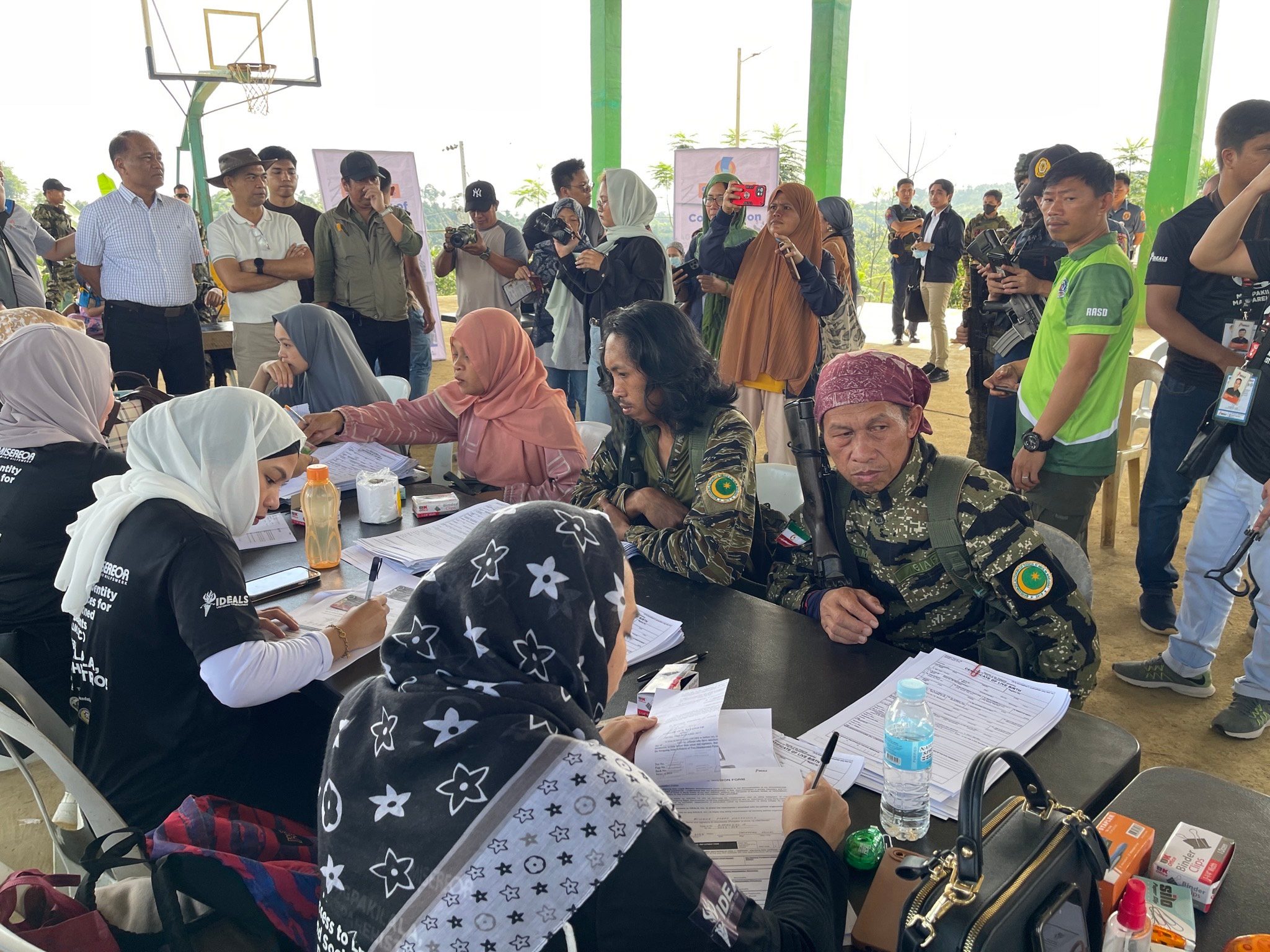
LANAO DEL NORTE, Philippines – Mindaya Macaantal Bayan spent decades fighting with her people to eke out a homeland in the Southern Philippines.
Amid conflict, she married and gave birth to nine children. She also served in the Moro Islamic Liberation Front (MILF) Bangsamoro Islamic Women Auxiliary Brigade (BIWAB). Her children grew up to take up the fight.
Bayan is now 78 years old. Social services that most Filipinos take for granted have always been beyond her reach.
Until Thursday, April 27, Mindaya did not officially exist in the records of the Philippine government.
At Camp Bilal, Munai town, Lanao del Norte, the MILF veteran carefully handled her certificate of live birth.
“Now I can get a government ID,” she told Rappler in the Maranao language, which an interpreter translated.
“I can apply for government services.”
Her smile widened.
“Maybe I can go to Saudi (Arabia) for the Hadji.”
Bayan, a member of the Bangsamoro Islamic Women Auxiliary Brigade (BIWAB), was among 300 decommissioned and non-decommissioned Moro Islamic Liberation Front (MILF) combatants and their families who claimed their certificates of live birth in Camp Bilal, Lanao del Norte.
The community mingled with representatives from the Office of the Presidential Adviser on Peace, Reconciliation, and Unity (OPAPRU) including Acting Secretary Isidro Purisima, and representatives of the Australian Embassy, Dutch Embassy, Japanese Embassy, and The Asia Foundation.
Another distribution activity was held in Balo-i town, also in Lanao del Norte.
More than a thousand MILF members and supporters have already received their birth certificates, said Lucia Ann Silva, a paralegal of the Access to Legal Identity and Social Services for Decommissioned Combatants (ALIAS DC).

Shift in thoughts
On the sidelines of the event, active combatant Alimama Mananggolo of Tamparan, Munai, Lanao del Norte grinned as he discussed how birth certificates could spur the next phase in the decommissioning process.
Mananggolo kept turning to his niece, who carried a child on her hip, for help in interpretation.
The 45-year-old acknowledged the strangeness of shifting one’s thought process from when, where, and how to fight, to how to start a livelihood project.
Mananggolo punctuated his explanations with shy giggles.
As he talked, one hand of the 45-year-old fighter continuously stroked the butt of the rifle he carried to the event.
Bayan and Mananggolo got their birth certificates on site, the same morning their were interviewed.

On his right are Presidential Adviser Secretary Isidro Purisima, Australian Embassy Jennifer Bennett, and Roy Hans,Counter terrorism advisor for Southeast Asia of the Dutch Embassy. (Merlyn Manos)
Alias-DC is part of the social protection program for decommissioned MILF combatants
Presidential Adviser for Peace, Reconciliation and Unity, Secretary Isidro Purisisma, said it aims to resolve legal identity issues facing ex-fighters.
“The project aims to help them establish their legal identity, and consequently, facilitate their return to mainstream society,” Purisima said.
The Initiatives for Dialogue and Empowerment Through Alternative Legal Services (IDEALS) implements the project funded by the European Union, the Australian Embassy in the Philippines, Japan, and The Asia Foundation.
What’s at stake
Silva told Rappler in a telephone interview that ALIAS DC has 35,665 target beneficiaries across six MILF camps or communities in Maguindanao del Sur, Maguindanao del Norte, North Cotabato, Lanao del Sur, and Lanao del Norte.
A Certificate of Live Birth is a fundamental requirement for government recognition and provision of services.
It is the most basic requirement on which to build the capacity to undertake legal transactions with different government agencies, and get socio-economic assistance like Philhealth coverage, scholarship grants, and other benefits.
Many of the target beneficiaries do not own any other supporting documents.
The latter decommissioning process and the normalization phase of the peace agreement between the Philippine government and the MILF cannot advance without resolving legal identity problems.
Because many of the beneficiaries, especially the combatants, cannot read or write, they can not fill out a certificate of live birth form.
They also do not have the means to get affidavits from two disinterested parties to back up their claim to identity.
“IDEALS designed a legal mission process,” said Silva.
Civil registration laws on late registration mandate a personal appearance by the registrant.
“Doon mismo sa civil registrar, where they fill up the forms” Silva pointed out.
The staff of the civil registrar’s office also interview registrants to ensure all the claimed facts are accurate.
That could cause a nightmare of confusion between combatants, who have lived for decades rejecting and ignoring the nation’s laws, and registrars, especially those transplanted from different cultures.
Nuances
IDEALS got government approval to train local volunteers.
They also successfully negotiated for the dropping of the personal appearance rule. Instead, IDEALS took on the responsibility of collating all required documents and processing these with local registrars.
It is a painstaking process.
For the Lanao hub, a team of 30 volunteers, mostly women, undertook a one-day training in civil registration in Iligan City.
They learned to fill out a certificate of live birth form. They also had a workshop on how to coax out the needed information from target beneficiaries trained to be tight-lipped all their lives.
“That’s why it’s important to get Maranao volunteer paralegals because they know the language,” said Silva, noting that many combatants also do not speak or understand Filipino.
Community folk know the nuances of the culture, and they make people comfortable, Silva added.
The volunteers don’t just get the basic information of the registrant.
They also need to interview the witnesses who will testify to the correctness of the information.
Shared identity is crucial in the process, Silva stressed.
“They must also know the nuances of the Shari’ah law,” she added.
There are provisions in the Civil Registration Code that are not applicable to the Muslim population.
For instance, the Civil Code says a child born within marriage should carry the last name of the father.
“But under the Shari’ah law, or the Code of Muslem personal law, or PD 1083, Muslims are allowed to carry the first name of their father as their family name,” Silva said. “Our paralegal volunteers are aware of those rules.”

Woman power
The volunteers trained for a day on the comprehensive basic fundamentals of the civil registration law under the Civil Code and the code of Muslim personal law.
“We gave them hands-on training, simulating a legal mission, interviewing with clients,” Silva said.
“Then we deployed them immediately to legal missions, so they could learn on the spot,” she added.
IDEALS and ALIAS DC project staff stand by to clarify issues.
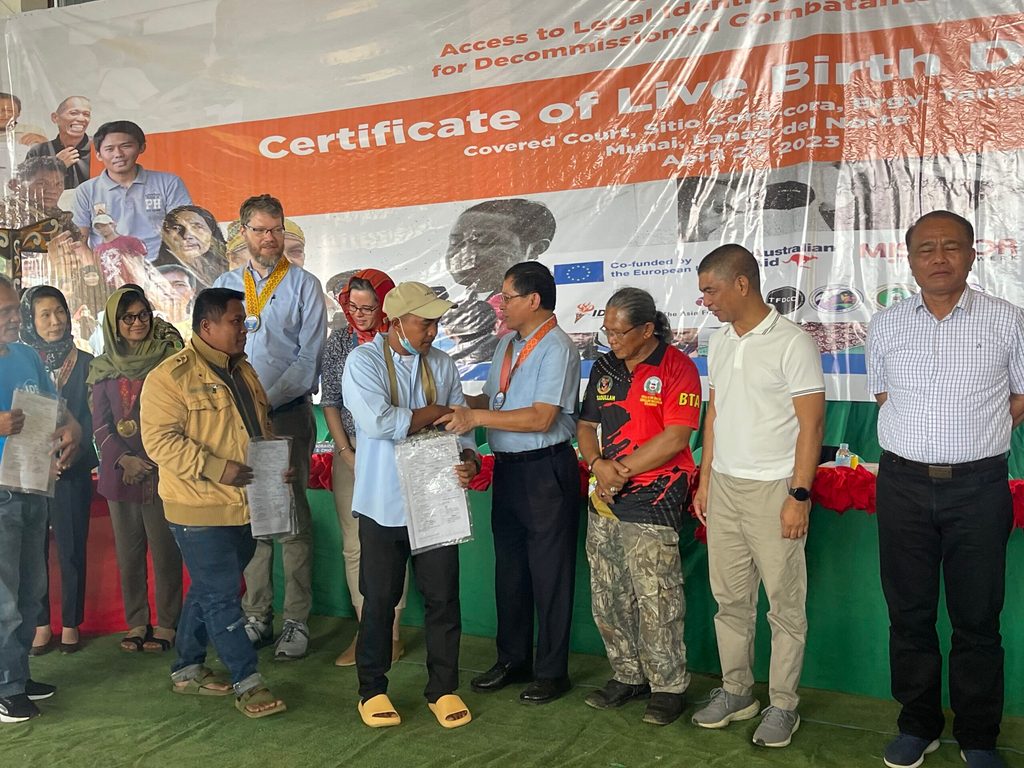
Silva said male beneficiaries outnumber females since the project is geared toward combatants.
But women volunteers outnumber men.
More women have had the opportunity for basic education in former war-torn areas.
As the men fought – or migrated to earn money – the women also became authorities in communities, especially on personal matters.
Neither were Muslim women in the areas under decommissioning relegated to the confines of hearth. They served as medics and informal negotiators, and many were also trained combatants with experience in defending their homeland.
That kind of grassroots leadership was clear in Camp Bilal.
Nora Amer, a 48-years old mother of five, shepherded neighbors and kin.
Amer, a former combatant of the MILF’s 126 base command based in Pualas, Lanao del Sur got her birth certificate in March with the first batch of beneficiaries.
Since then, she has been helping organize the registration drive.
Amer and other women moved around their folk, providing advice, answering questions, and acting as interpreters.
At one point, women chided the more reluctant combatants, talking of a future with hope.
Amer brought her colleagues and their families to Munai to start the process of registration.
“ Mahirap kasi sa amin nasa bundok kami. Tapos wala kaming alam at wala din kaming pera pambayad. Kaya sinamantala namin ang pagkakataong ito na mabigyan kami ng libre at hindi na kami mahirapan pa” she told Rappler.
(It’s hard for us because we live in the mountains. We don’t have information, we also don’t have the money for processing. So we are taking advantage of this opportunity to do this for free and not have a hard time.)
Amer does not know what the future holds.
Like many of the MILF members at Camp Bilal, she has misgivings about some aspects of the still-continuing peace process.
But for Amer and Mindaya, to not even try would dash any way out of conflict. – With Inday Espina-Varona/Rappler.com
Add a comment
How does this make you feel?

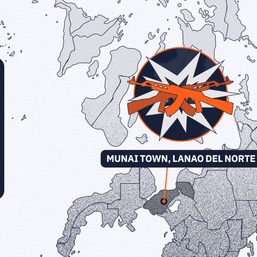
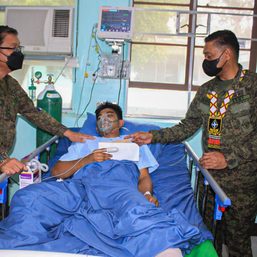
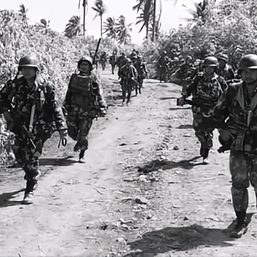
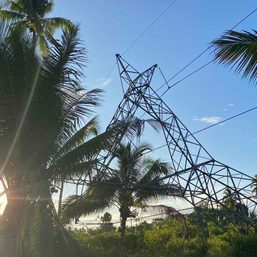





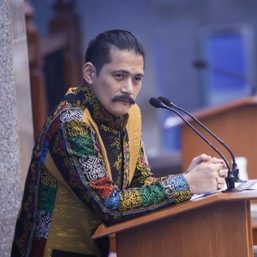
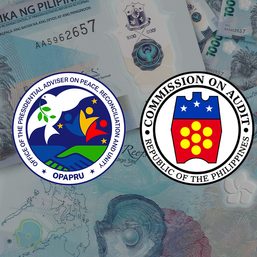
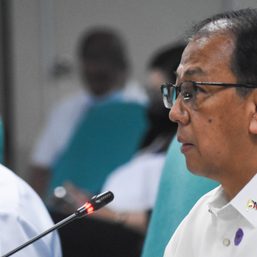
There are no comments yet. Add your comment to start the conversation.